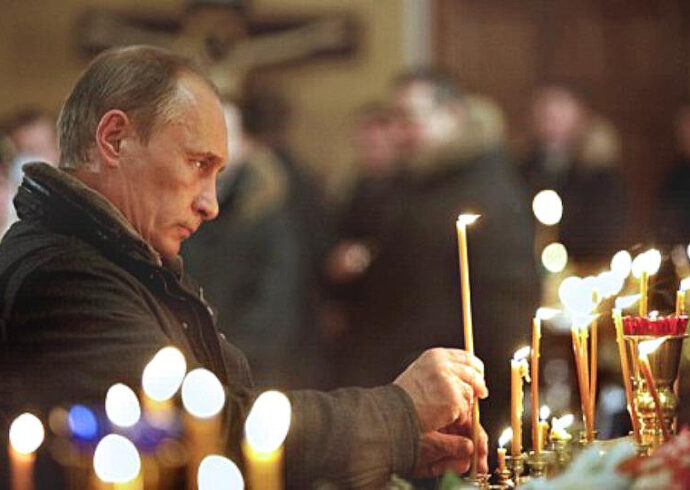On June 16, a bill to more closely regulate foreign funding for religious organizations in Russia passed the State Duma profile committee and now awaits approval.
What are the real motivations behind this bill, and whom will it benefit?
The Moscow Patriarchate has expressed support for this bill, while the Embassy of the Vatican in Russia and the Vice Chairman of the Muslim Board of Russia’s European Part have released statements affirming their respective communities’ intentions to abide by the new regulations. Meanwhile, a senior Chabad Rabbi from Moscow, Boruch Gorin, expressed serious concern about the possible ramifications of the bill for for Jewish communities and organizations—most of which receive some sort of funding from Jewish groups outside of Russia.
The ostensible goal of the bill—the curtailment of foreign funding—could indeed have a negative impact particularly on minority religious groups in Russia. Besides the Jewish community, many Protestant Christian groups receive donations from foreign countries (including the American evangelical community) and the removal of financial support from abroad could make it harder for those groups to maintain places of worship, schools, charities and other organizations.
Foreign missions, such as that of the Church of Latter-Day Saints, are also likely to be affected.
However, as damaging as the new regulations could be to the practical operations of minority religious communities, the greater significance of the bill lies in the drive to remove perceived foreign influence from Russian society and to reinforce the cultural dominance of the Orthodox Church.
Despite her statement of intended compliance with the bill, Vatican Cultural Attache Giovanna Parravicini told Interfax-Religion on June 17 that she was concerned about the effect of restricting international aid on the “international solidarity of all Christians.”
The bill is reminiscent of recent regulations against foreign NGOs and other organizations in Russia, in effect putting religious organizations in the same category as NGOs in terms of their possible threat. It points to an overarching anxiety on the part of the regime (not to mention a large portion of the populace) about the danger that foreign, usually Western European and American, values represent for the amorphous category of “traditional Russian values.”
Organizations that accept financial support from abroad are, by the logic of this bill, presumed to also be under possible anti-Russian influence and to thus pose the threat of disseminating anti-Russian ideas. Of course, in the current public discourse foreign influence and foreign ideas have increasingly become shorthand for pro-LGBTQ sentiment and civil rights in a more general sense. However, in the case of religious organizations, anti-government sentiment is the main concern.
Similar to the recently enacted “anti-extremism” law, which has been used to investigate clerics publicly opposed to Russian military action in Ukraine, the foreign funding bill could work to preemptively silence criticism of the State from a religious standpoint. Likewise, just as the anti-extremism law has been used to investigate Jewish schools on seemingly non-existent grounds, this new bill would establish legal grounds for the federal investigation of suspect religious groups under the guise of alleged financial non-compliance.
Russian Islamic groups, who have been the primary targets of anti-extremism investigations, are likely to fall under an even greater degree of scrutiny. In fact, the proposed bill also claims the fight against religious extremism as its basis and expands the degree of government authority in investigating alleged extremism.
In thus disempowering minority religious groups, the State implicitly, but quite clearly, reinforces the status of the Russian Orthodox Church as the putative State Church. The ROC is by default exempt from this law: being in no need of foreign funding, it would experience none of the negative financial consequences or fears of intrusion. On the contrary, it would enjoy an even greater degree of cultural influence, afforded by the ability to continue expanding its social initiatives in an environment where other faith groups may have to conserve resources.
Moreover, due to the perception of the Church as the quintessential Russian faith, it is unlikely to ever even be suspected of violating the law. The Church’s continued public cooperation with the State and the many public statements in support of Russian patriotism and nationalism regularly released by its clerics would continue to reinforce the link between Russianness and Orthodoxy and maintain the expectation that faith groups either support the government or remain silent on political issues.
Lastly, by reinforcing the dominance of the ROC and the link between Russianness and Orthodoxy, the proposed law would contribute to what we might refer to as the “othering” of non-Orthodox citizens in Russian society. As the head of the Synodal Department for Church-Society Relations, Archpriest Vsevolod Chaplin, told Religion Interfax,
those religious organizations that are well-rooted in Russia have taken a peaceful and patriotic stance, are not dependent, including financially, on foreign organizations and have every reason to be trusted and supported by the state.
In other words, groups that require foreign funding lack deep roots in Russia and are by default potentially unpatriotic outsiders. The explicit expectation of patriotism from religious groups unequivocally sets the Russian Orthodox Church as the standard.
The proposed financial regulations, therefore, are not actually about money or anti-extremism. Underlying the bill is a deep national anxiety about the culture war between Russia and the West—a culture war which, for the current regime, is contingent upon reinforcing a very particular set of “traditional” values defined by cultural conservatism and patriotism.





